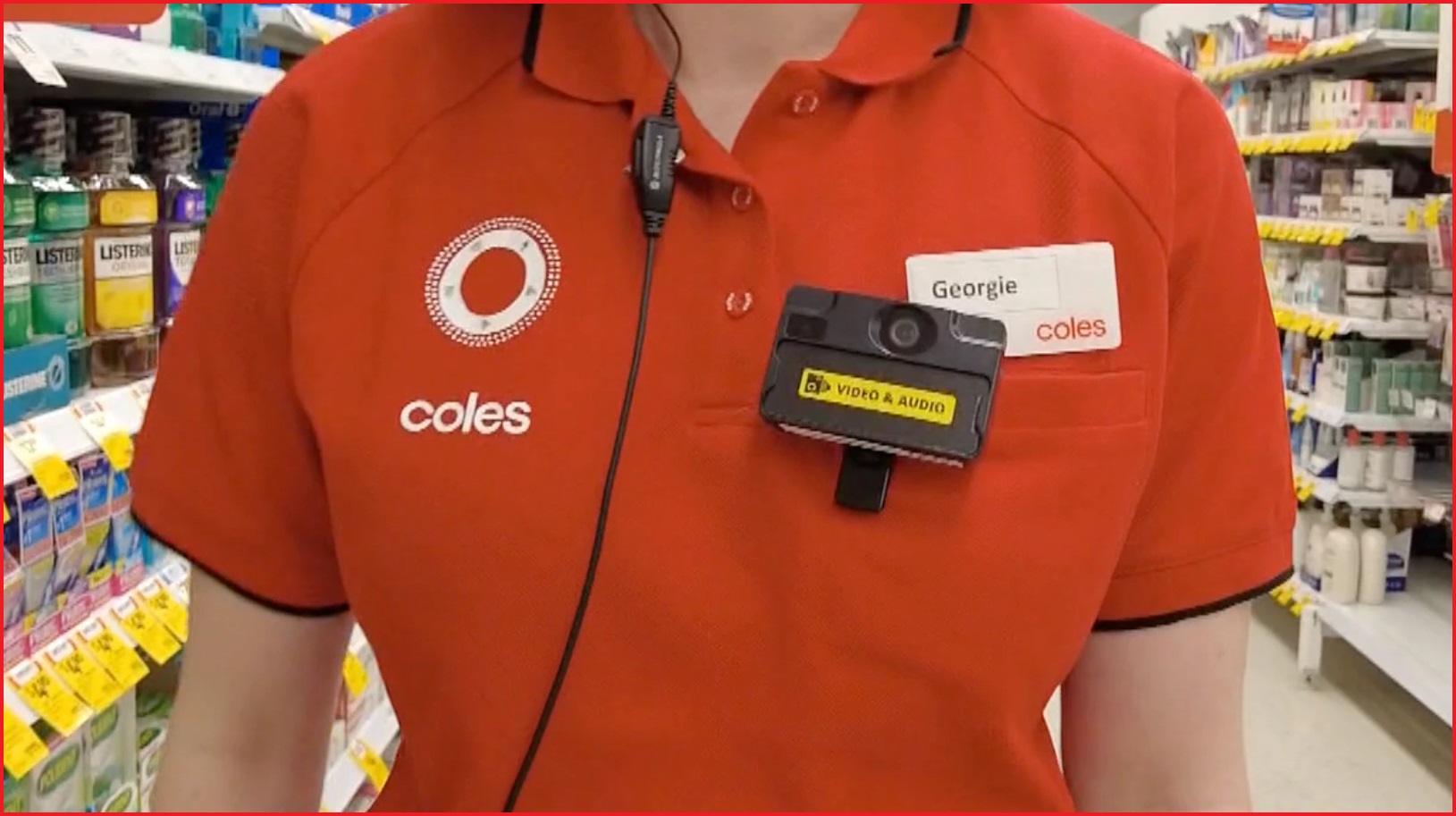Coles employees will be fitted with body-worn cameras as the in-store surveillance of shoppers continues to ramp up under the guise of preventing theft.
The Australian supermarket giant has announced it will be rolling out body-worn cameras for staff in 30 stores around the country, in addition to new cameras that record customers when scanning products for purchase, and smart gates that prevent people from leaving the store if they have not properly scanned an item.
Coles has said that these measures are designed to prevent theft and the abuse of its employees, but the increase in surveillance has led to concerns over privacy and whether it is a proportionate response to the issues.
A spokesperson for Coles said shoppers who are not misbehaving should not be concerned about the new surveillance measures.
“The majority of customers do the right thing,” the spokesperson said.
“Measures like this are for the ones who don’t.”
It comes soon after Coles reported a $1.1 billion annual profit, along with an increase in stock loss from theft.
The body-worn cameras will be only switched on during “threatening situations”, the Coles spokesperson said, and customers will be warned before this happens. The vision and audio captured by the cameras will be transferred live to a secure “monitoring centre” so an appropriate “emergency response” to be coordinated.
Coles rival Woolworths has been using similar technology since 2021, when it reported a doubling of assaults on staff. But after a year of using cameras to monitor shoppers, Woolworths still hadn’t updated its privacy policy to address this privacy-invasive practice.
A spokesperson for the company said that the use of body-worn cameras has led to a “substantial reduction in the amount of abuse and physical incidents” faced by Woolworths employees.
Woolworths is also using cameras to monitor shoppers at self-service counters, and image-recognition technology and overhead cameras to detect the product being scanned by a shopper.
Shop, Distributive and Allied Employees’ Association secretary Josh Peak said that body-worn cameras should only be used for combating abuse, not for preventing shoplifting.
“There are many better ways to prevent shoplifting,” Peak told ABC News.
“We don’t want any suggestion that workers are some kind of mobile security camera - that’s where we can absolutely see this actually causing violence and abuse.”
Digital rights advocates have also raised concerns with the scheme, with Australian Privacy Foundation vice-chair Dr Monique Mann saying that the underlying causes of shoplifting should be addressed instead.
“I think Coles should perhaps consider other approaches that do not default to surveillance,” Mann told news.com.au.
“People are struggling. At the same time, Coles and Woolworths are recording massive profits amid a cost of living crisis. Maybe they should think about that and try to alleviate cost of living pressures rather than just expand surveillance for their profits.”
Along with the body-worn cameras, Coles is also rolling out new checkout cameras and smart gates which will automatically lock to prevent a shopper from leaving if they haven’t accurately scanned an item.
Other retail giants have also recently turned to technology in an attempt to prevent shoplifting and abuse of their staff.
Last year Bunnings and Kmart were forced to pause the use of facial recognition technology in stores after widespread backlash and an investigation by the Privacy Commissioner. The stores were found to be using facial recognition in stores without the express consent from customers for the purpose of “preventing criminal activity”.










